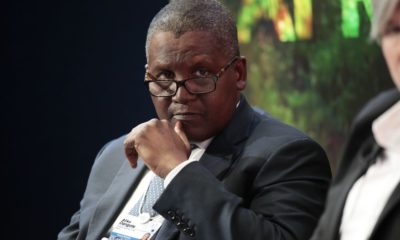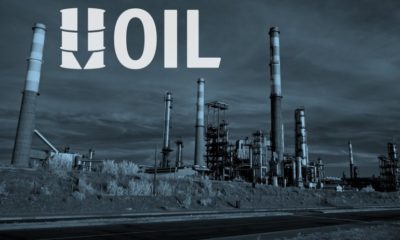In a historic move, Dangote Refinery is set to ship low-sulfur straight-run fuel oil (LSSR) from Nigeria to Singapore this week, its entry into the Asian market.
This development represents a significant milestone for the refinery, which began operations in January following a $20 billion investment.
According to ship tracking data and market sources, the refinery will initiate a new trade route from Nigeria to Asia, a region that consistently demands low-sulfur fuel oil for ship refueling at Singapore, the world’s largest bunker hub.
The Glencore-chartered vessel, Front Brage, will deliver approximately 124,000 metric tons (787,400 barrels) of LSSR to Singapore, with the shipment expected to arrive on Wednesday.
The Dangote Refinery, with a processing capacity of up to 650,000 barrels of products per day, is poised to become the largest refinery in Africa and Europe once it reaches full capacity.
Since March, the refinery has increased its LSSR exports, primarily sending cargoes to the Americas and Europe, as reported by ship tracking data from Kpler and Vortexa.
“This first shipment to Asia marks a new chapter in Dangote Refinery’s expansion strategy,” said a market analyst. “Breaking into the Asian market underscores the refinery’s growing influence and its capability to meet diverse global fuel demands.”
Market sources suggest that the cargo was redirected to Asia due to weaker demand in Europe. Data from LSEG indicates that the east-west spread for front-month 0.5 percent LSFO, reflecting the price difference between these regions, stayed above $40 per ton this week.
Dangote’s LSSR cargoes are priced against Rotterdam’s 0.5 percent LSFO quotes on a free-on-board basis, although the specific pricing differential for this shipment was not disclosed by market sources.
This pioneering shipment is the beginning of a series of exports to Asia. Another LSSR shipment from the Dangote refinery, containing around 157,000 tons, is expected to reach Singapore in July aboard the vessel Stena Suede, based on ship tracking data.
LSSR is typically blended with other fuels to create low-sulfur fuel oil (LSFO) for bunkering or used as feedstock in various refinery processes.
This export initiative not only diversifies Dangote Refinery’s market reach but also enhances Nigeria’s position in the global energy market.
In February, Dangote began exporting oil products and started purchasing crude oil, mainly from the Nigerian National Petroleum Company (NNPC) Ltd, in December 2023.
The refinery’s successful entry into the Asian market is anticipated to drive further growth and establish new trade relationships, reinforcing its status as a key player in the global oil industry.
Related News:
- Big oil buyers’ shift to electric vehicles threatens Nigeria’s petrodollars
- More naira, less value as inflation erodes N7.6tn consumer spending
- Seasonality, high transport costs responsible for tomato price surge, says expert
This landmark export not only demonstrates Dangote Refinery’s operational capabilities but also signals Nigeria’s expanding influence in the global energy sector. As the refinery continues to innovate and expand, it is well-positioned to meet the increasing global demand for cleaner, more efficient fuels.


 Education4 weeks ago
Education4 weeks ago


 News3 weeks ago
News3 weeks ago


 Business3 weeks ago
Business3 weeks ago


 Technology3 weeks ago
Technology3 weeks ago


 Investment4 weeks ago
Investment4 weeks ago
 Investment3 weeks ago
Investment3 weeks ago
 Telecommunications4 weeks ago
Telecommunications4 weeks ago


 Banking Sector3 weeks ago
Banking Sector3 weeks ago
















